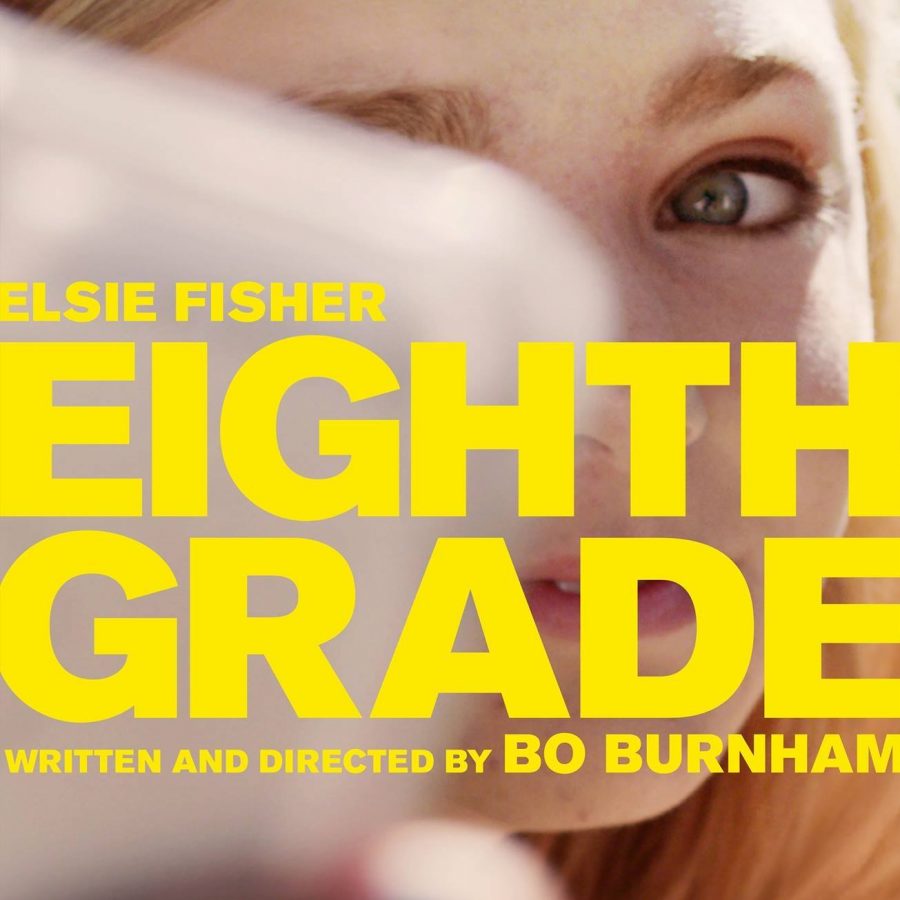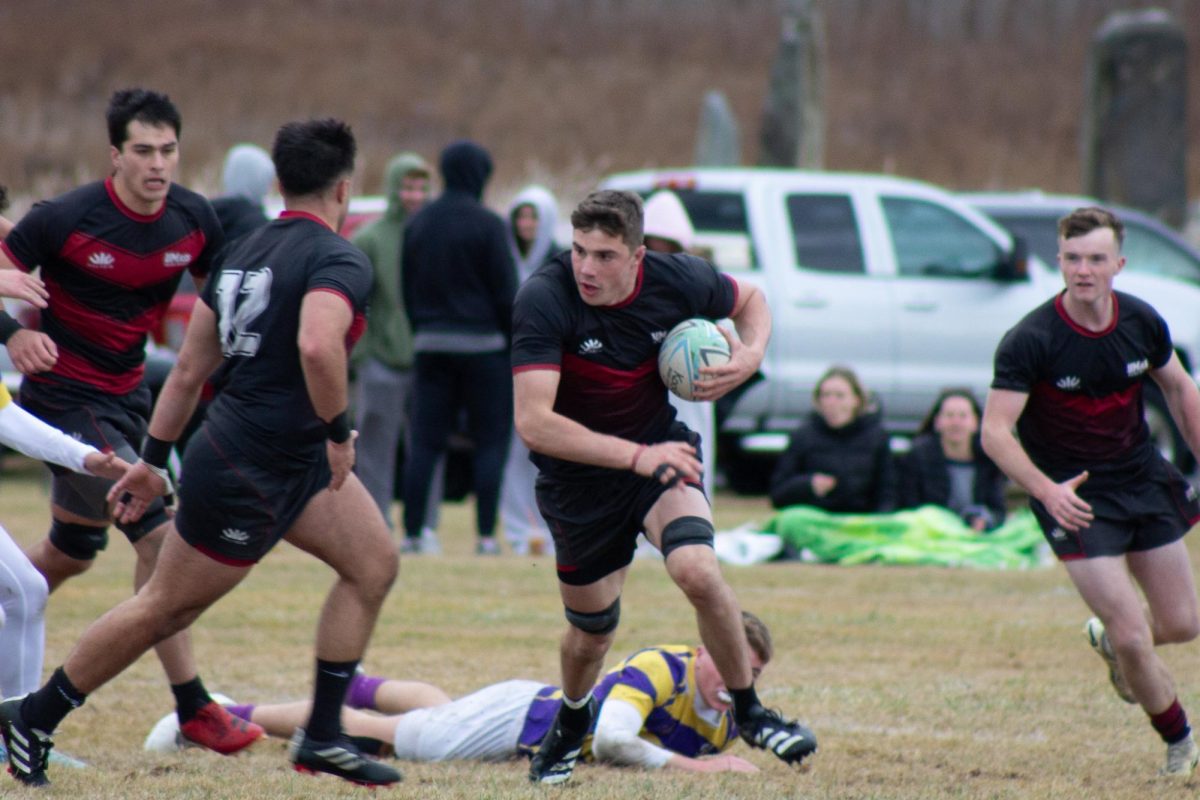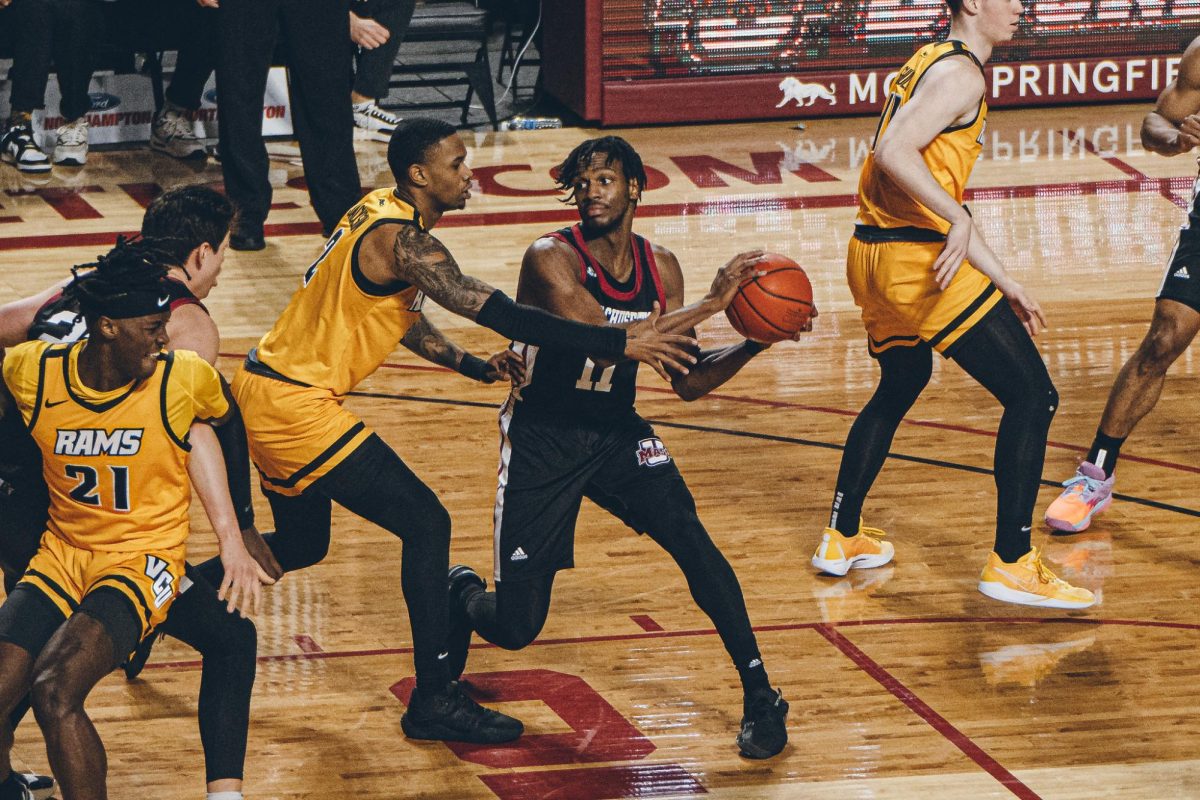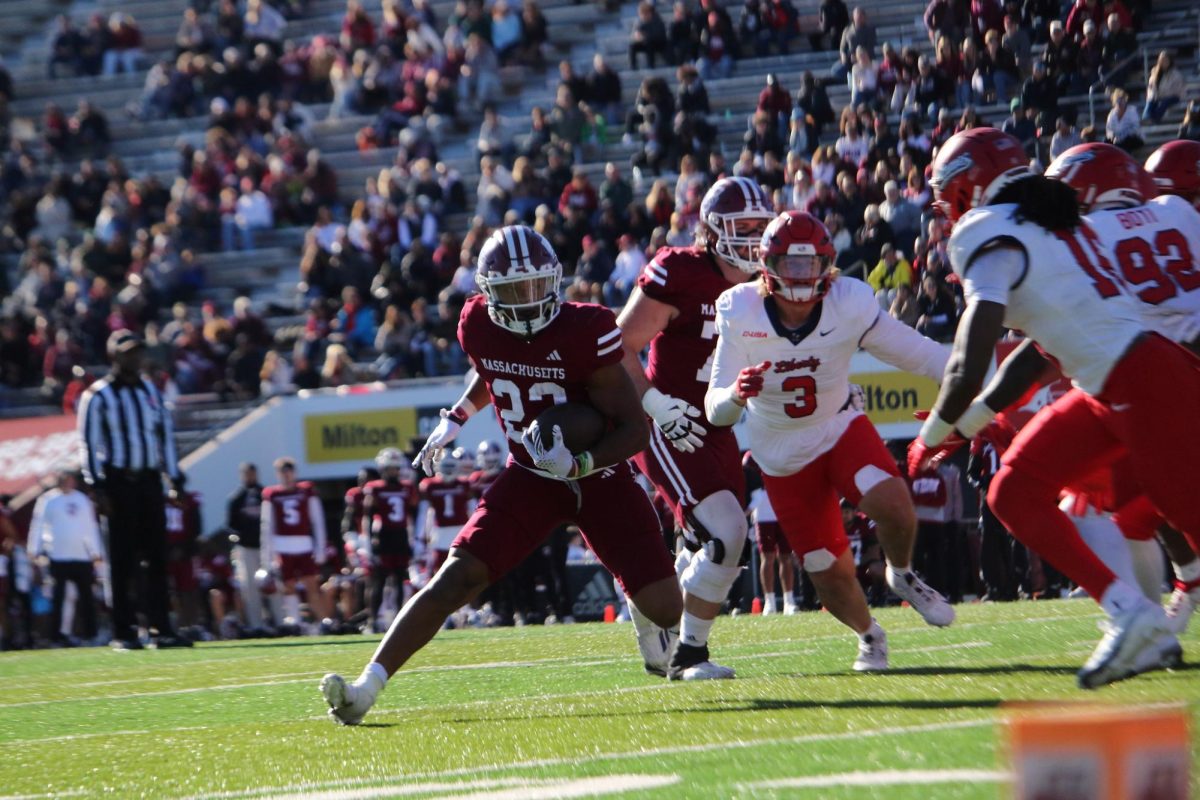Editor’s Note: This story includes spoilers for the film “Eighth Grade.”
When asked to recall a favorite age of adolescence, very few adults choose middle school, and it’s not difficult to see why. It’s a very common experience that middle school is the peak of the “awkward stage.” And eighth grade? Well, simply speaking, it’s the He-Who-Must-Not-Be-Named of grades, the Voldemort of everyone’s school career.
Despite middle school being the source of dramatic subject material, the majority of coming-of-age films focus on high school students. However, Bo Burnham, first time film writer and director of “Eighth Grade”, gives middle school the quality cinematic representation it deserves. The film offers a startlingly relatable depiction of the struggles associated with middle school; more specifically, it highlights the obstacles present day students face in the age of social media.
Main character Kayla Day (Elsie Fisher) relates to a large audience. She creates YouTube videos on image and self-confidence, but she feels unseen both online and among her peers. She wins the “Most Quiet” award at school and visibly struggles to make connections with other students. For anyone who has suffered with social anxiety, Kayla’s internal conflict is all too familiar. The film excels at transporting the audience back in time, whether they wish to remember the horrors of middle school or not. As a result, the bond the viewer forms with Kayla is tremendous, one of the film’s strongest feats.
It’s impossible not to root for Kayla as she grows throughout the film. In the beginning, Kayla is invited to a pool party hosted by popular classmate Kennedy Graves (Catherine Oliviere). However, it’s Kennedy’s mother who gives Kayla the warm invitation and it is clear that Kennedy is irritated at the prospect of Kayla attending. Kayla isn’t eager to go at first, given that she feels wholly unconnected from Kayla’s group of friends, but it in the end she decides to come out of her shell and make an effort to boost her confidence, advice she is taking from her own videos. Thus, her YouTube videos act as a form of her own consciousness. The audience watches her learn to take her own advice and to take positive personal steps towards happiness. While at the party, Kayla battles her anxiety but is able to overcome it, socializing with new people such as Kennedy’s goofy cousin Gabe (Jake Ryan), who she reconnects with at the end of the film in one of the film’s most comical — and memorable — scenes.
Kayla’s relationship with single father Mark Day (Josh Hamilton) is a central thread throughout the film. The audience sees her dad struggle to make conversation with Kayla over dinner as she scrolls through her social media and listens to her music on full blast. This is Burnham’s way of showing that Kayla feels more comfortable in her own world on social media than with her father. There are several reasons why Burnham may have decided to focus on this family unit of two, but the most likely is that he wanted to highlight the obstacles specific to a father-daughter relationship. Kayla doesn’t feel comfortable sharing specific information about her personal life, i.e. boy trouble, which creates even more distance.
However, this changes after an uncomfortable experience with the friend of a girl Kayla befriends through the high school shadow program. Kayla is ecstatic to meet Olivia (Emily Robinson), and the newfound friendship gives Kayla hope for high school. Olivia reassures Kayla that her coming years are far superior to the ones she is leaving behind. She even invites Kayla out to the mall with her friends to make her feel even more comfortable. While they are having an open, friendly conversation, one of Olivia’s friends spots Kayla’s father watching the scene from a distance. Kayla becomes furious and tells him to leave, an understandable yet heartbreaking reaction due to Mark’s clear love and concern for his daughter.
Later that night, Olivia’s friend Riley (Daniel Zolghadri) drives Kayla home. At first they make normal conversation, but along the way Riley pulls over and gets into the back seat with Kayla. The dynamic quickly becomes uneasy when he challenges her to a game of truth or dare, leading him to take his shirt off and daring her to follow. When Kayla refuses, Riley is indignant and claims he was just trying to help her get experience with boys. Riley’s unjust reaction creates a new flood of anxieties about high school that Kayla had not anticipated, and it seems in this moment that her hope of self-redemption is shattered. When Kayla returns home, she runs to her room in tears, where she finally lets her father in, allowing him to comfort her. Soon afterwards, Kayla makes a video announcing that she will not be making videos any longer because she feels that she has failed as an influencer since she cannot follow her own advice.
The movie’ssuccess in portraying realistic teenage angst and palpable social anxiety is all thanks to Elsie Fisher’s impeccable acting. The audience never had to question her emotional reactions or the plausibility of events. Viewers are in her shoes, taken back to middle school, forced to remember their own awkward years between elementary and high school and to compare them to Kayla’s. In the end, viewers watch through gleeful tears as Kayla has a heart-to-heart with her father. When Kayla asks him if he’s sad that she is his daughter, his immediate response is that he could never be anything but proud. The film ends with Kayla standing up to Kennedy and creating a new YouTube video anticipating high school, in which she declares her resolution for the future.
The film has received a resoundingly positive response, proving Burnham’s premiere film to be successful with all ages despite the prevalence of social media in the story. Due to its highly relatable nature, the film allows older generations to sympathize and understand the obstacles Kayla faces with social media. They are able to see why platforms such as Instagram and YouTube allow Kayla to feel like she has a voice outside of her anxiety inducing world, and younger generations find relief in the accuracy of the film’sportrayal.
Chandley McKenzie can be reached at [email protected].




















